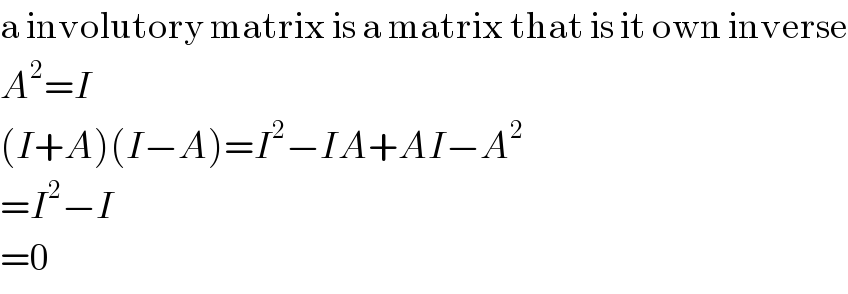
Question and Answers Forum
Question Number 55844 by gunawan last updated on 05/Mar/19

Answered by 121194 last updated on 05/Mar/19

| ||
Question and Answers Forum | ||
Question Number 55844 by gunawan last updated on 05/Mar/19 | ||
 | ||
Answered by 121194 last updated on 05/Mar/19 | ||
 | ||
| ||